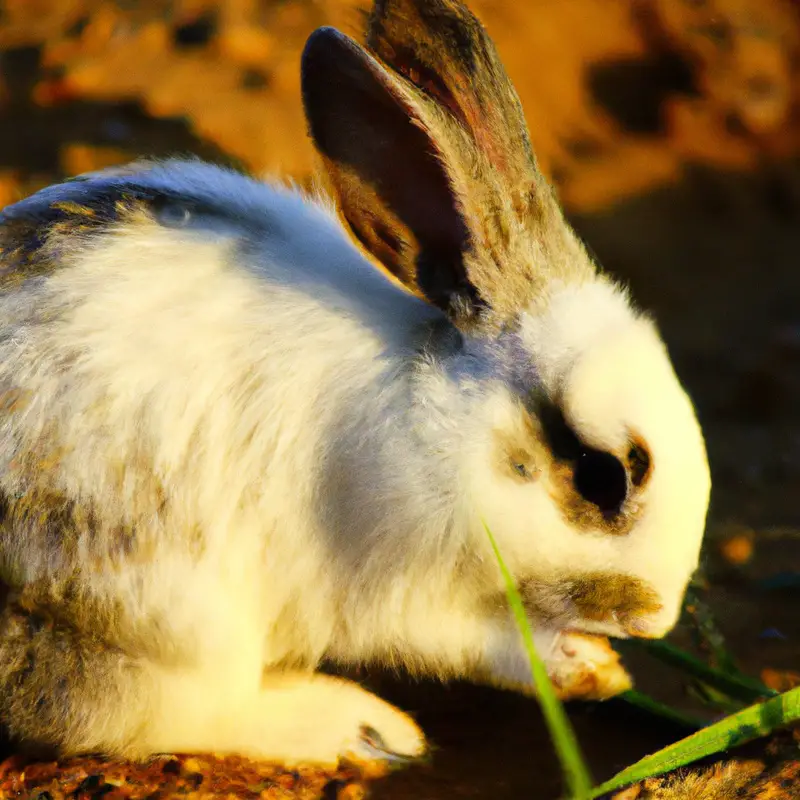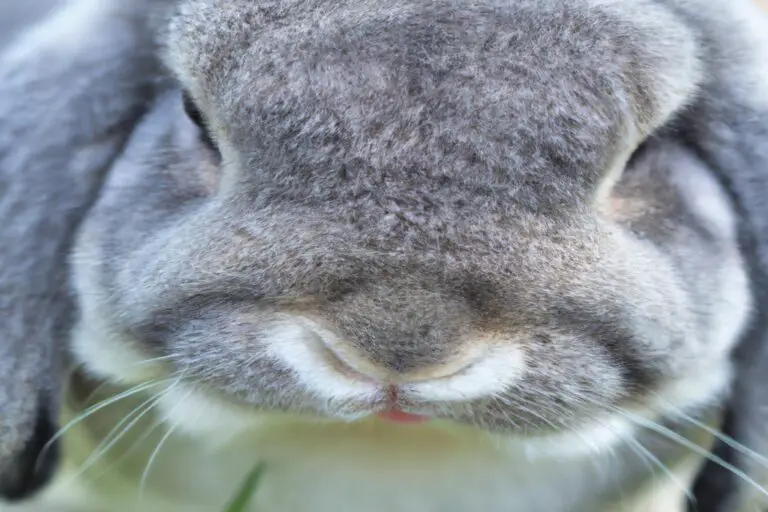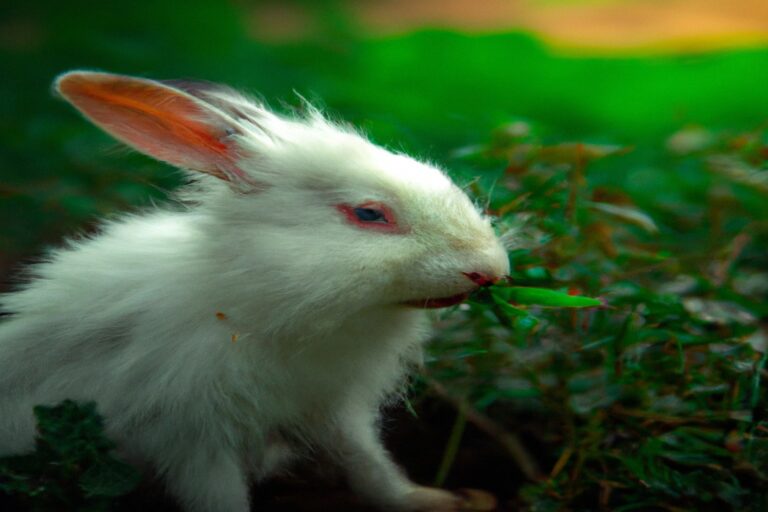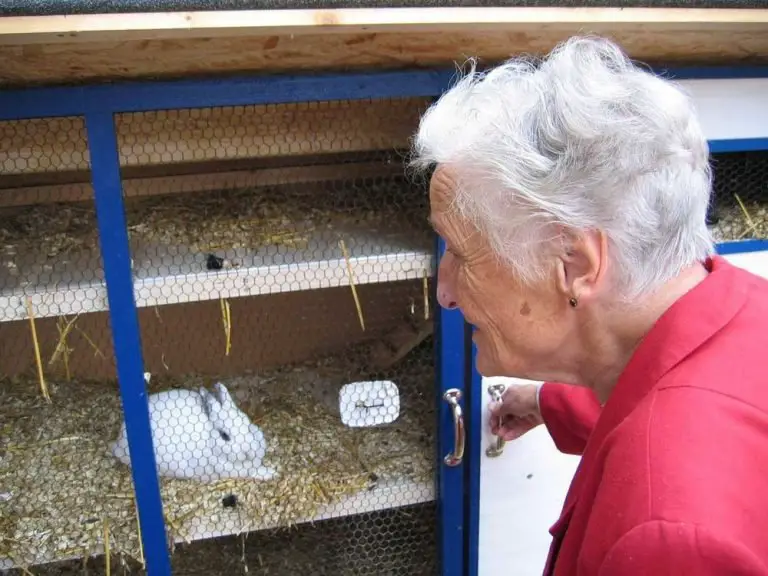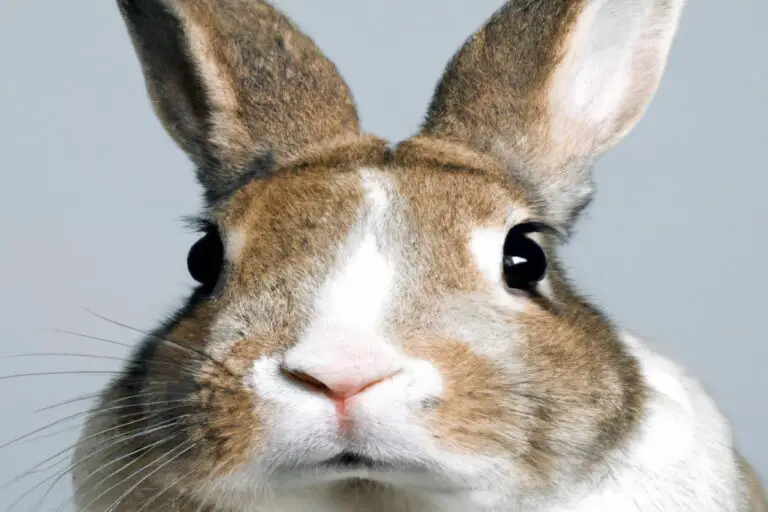The Ultimate Guide To Rabbit Care: Tips For Happy And Healthy Bunnies
Key Takeaways:
- Provide a spacious and comfortable living environment for your rabbit to ensure their happiness and well-being.
- Ensure a balanced diet with a mix of hay, fresh vegetables, and high-quality pellets to keep your bunny healthy.
- Regular exercise and mental stimulation are key to keeping your rabbit physically and mentally active.
- Regular veterinary check-ups and grooming sessions are essential for maintaining your bunny’s overall health and hygiene.
Are you thinking about bringing a furry friend into your life? Look no further than a delightful rabbit companion! These adorable, hoppy creatures make for fantastic pets, but like any animal, they require proper care and attention to thrive.
Whether you’re a first-time rabbit owner or a seasoned bunny enthusiast, our Ultimate Guide to Rabbit Care has got you covered.
From choosing the right breed to creating a suitable habitat, feeding and grooming, exercise and mental stimulation, health maintenance, socializing and bonding, all the way to handling and training, we’ll provide you with expert tips and tricks for raising happy and healthy bunnies. Get ready to hop into the wonderful world of rabbit care!
| Aspect | Tips |
| 1. Housing | Provide a spacious cage or hutch with enough room for the rabbit to hop around. Ensure good ventilation and cleanliness. |
| 2. Nutrition | Feed a balanced diet consisting of fresh hay, vegetables, and rabbit pellets. Limit treats and avoid foods toxic to rabbits. |
| 3. Exercise | Allow daily exercise outside the cage, either in a secure, rabbit-proofed room or an enclosed outdoor space. |
| 4. Socialization | Spend quality time with your rabbit daily, providing companionship and mental stimulation. Consider adopting a bonded pair. |
| 5. Grooming | Regularly brush your rabbit’s fur to prevent matting and hairballs. Trim nails and check teeth for overgrowth or dental issues. |
| 6. Health Care | Find a rabbit-savvy veterinarian for routine check-ups, vaccinations, and to address any health concerns promptly. |
| 7. Safe Environment | Ensure a rabbit-proofed home by removing hazards such as electrical cords, toxic plants, and small objects that can be ingested. |
| 8. Litter Training | Train your rabbit to use a litter box by providing a suitable box filled with rabbit-safe litter. Clean the litter box regularly. |
| 9. Dental Care | Provide appropriate chew toys and hay to promote dental health and prevent overgrown teeth. |
| 10. Mental Stimulation | Keep your rabbit entertained with toys, tunnels, and puzzle feeders to prevent boredom and promote mental well-being. |
Getting Started with Rabbit Care
To get started with rabbit care, you need to choose the right rabbit breed and create a suitable habitat.
Then gather essential supplies for their care.
Choosing the Right Rabbit Breed
Choosing the right rabbit breed is important to ensure a good fit for your lifestyle and preferences. Consider factors such as size, temperament, and maintenance needs.
Some popular breeds include the playful Holland Lop, the docile English Angora, and the intelligent Netherland Dwarf.
Research each breed’s characteristics to find one that matches your needs and prepare your home accordingly with appropriate cages and supplies. Always remember to give your rabbit plenty of love, attention, and care.
Creating a Suitable Habitat for Your Rabbit
To create a suitable habitat for your rabbit, provide them with a spacious cage or hutch that allows for sufficient movement. Ensure that the enclosure is safe, with sturdy walls and a secure door.
Line the bottom with soft bedding, such as hay or straw.
Provide a hiding spot and toys for mental stimulation. Create a separate area for a litter box, and regularly clean the enclosure to maintain cleanliness and prevent odor buildup.
Don’t forget to offer fresh water, hay, and a balanced diet to keep your rabbit healthy and happy.
Essential Supplies for Rabbit Care
Essential Supplies for Rabbit Care:
- A spacious and secure hutch or cage for your rabbit to have a comfortable living space.
- Fresh hay for daily consumption, as it helps maintain healthy digestion and wears down their teeth.
- High-quality rabbit pellets that provide essential nutrients and should be fed in moderation.
- Fresh vegetables and fruits (in limited quantities to supplement their diet and add variety.
- Clean, fresh water available at all times in a drip bottle or bowl.
- Chew toys to keep their teeth healthy and prevent boredom.
- A litter box filled with rabbit-safe bedding for litter training.
- Grooming tools like a brush and nail clippers to care for their fur and nails.
- A safe and secure outdoor enclosure for supervised playtime and exercise.
- Rabbit-safe cleaning supplies for regular cage maintenance.
- A carrier for transporting your rabbit when needed.
- A rabbit-safe first aid kit in case of minor injuries or emergencies.
Remember to provide a safe, comfortable, and enriching environment for your rabbit’s well-being.
Feeding Your Rabbit
To ensure your rabbit stays happy and healthy, it’s important to understand their diet and provide them with the right food and portion sizes.
Understanding a Rabbit’s Diet
Understanding a rabbit’s diet is essential for keeping your bunny happy and healthy.
Rabbits are herbivores, meaning their diet consists mainly of plant-based foods.
The two main components of a rabbit’s diet are hay and fresh vegetables.
Hay should make up the majority of their diet and should be available at all times.
High-quality hay provides essential fiber and helps maintain proper digestion.
Alongside hay, fresh vegetables such as kale, parsley, and carrot tops can be given daily to provide additional nutrients.
It’s important to introduce new foods slowly and observe how your rabbit reacts to ensure they tolerate them well.
Avoid feeding your rabbit foods that are high in sugar or starch, as it can cause digestive issues.
Always make sure your rabbit has access to fresh water to drink.
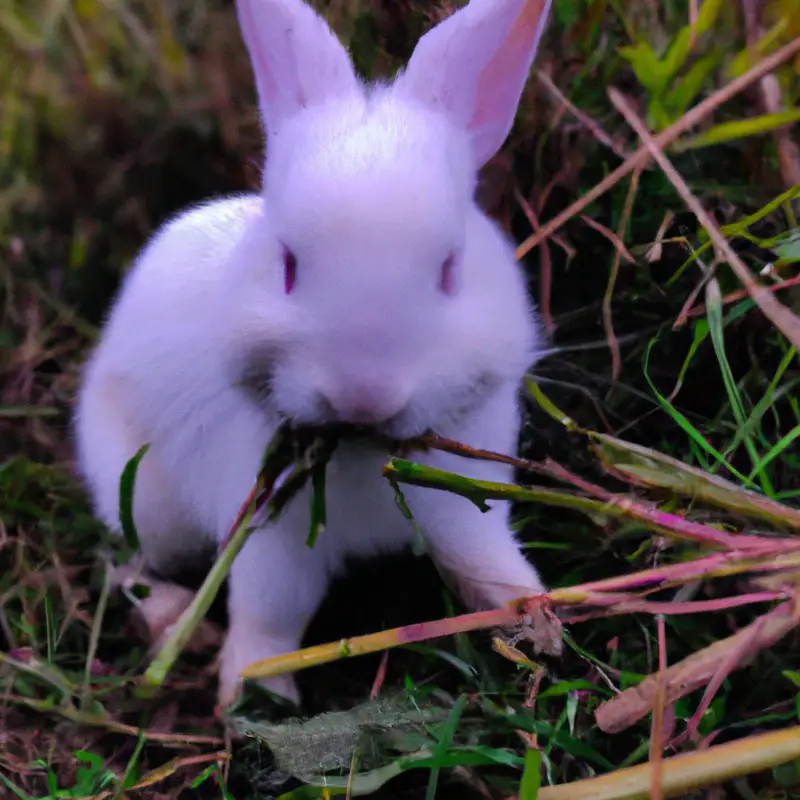
Choosing the Right Food for Your Rabbit
Choosing the right food for your rabbit is important.
A balanced diet is essential to keep your bunny healthy and happy.
You should prioritize high-quality hay as the main component of their diet.
Fresh vegetables, such as dark leafy greens, should also be included to provide additional nutrients.
Pellets can be given in moderation, but be cautious to choose ones with minimal additives.
Avoid giving them sugary treats or foods that are toxic to rabbits, like chocolate or avocado.
Remember, a well-balanced diet is key to your rabbit’s well-being!
Feeding Schedule and Portion Sizes
Feeding Schedule: It’s essential to establish a consistent feeding schedule for your rabbit. Their tiny tummies require a steady supply of fresh food.
Feed your bunny twice a day, at the same times each day.
This will help them establish a routine and maintain a healthy digestive system. Portion Sizes: When it comes to portion sizes, it’s important to remember that rabbits have specific dietary needs.
Offer them a measured amount of pellets based on their weight.
Additionally, provide them with a variety of fresh vegetables to keep their diet balanced. Keep in mind that moderation is key to avoid overfeeding.
Providing Proper Hygiene for Your Rabbit
To ensure your rabbit’s well-being, maintaining proper hygiene is essential. This involves keeping their living area clean, grooming them regularly, and taking care of their dental health.
Keeping the Rabbit’s Living Area Clean
To keep your rabbit’s living area clean, ensure you clean their cage regularly. Remove any soiled bedding, hay, or droppings daily, and replace it with fresh clean bedding.
Wipe down the cage with a pet-safe disinfectant to remove any bacteria or odor.
Additionally, provide a litter box for your rabbit and clean it regularly. Regular cleaning and maintenance of your rabbit’s living area will help keep them healthy and happy.
Bathing and Grooming Your Rabbit
Bathing and grooming your rabbit is an important part of their overall care. While rabbits are generally clean animals and groom themselves, they may need some assistance from time to time.
Here are a few tips to help you with this process:
- Bathing:
- Rabbits typically do not require regular baths unless they have gotten themselves extremely dirty or have a medical condition that requires it.
- If you do need to bathe your rabbit, it is important to use a gentle, rabbit-safe shampoo and lukewarm water.
- Ensure that you fully dry your rabbit after bathing to prevent them from getting cold.
- Grooming:
- Rabbits have specific grooming needs, especially if they have long fur. Regular brushing helps prevent matting and hairballs.
- Use a rabbit-specific brush or comb to gently remove loose fur and tangles.
- Pay attention to the areas around their bottom as fecal matter can get stuck, leading to health issues.
Remember to always handle your rabbit with care and make sure they feel comfortable during the bathing and grooming process. Seek advice from a veterinarian if you have any concerns or questions about caring for your rabbit.
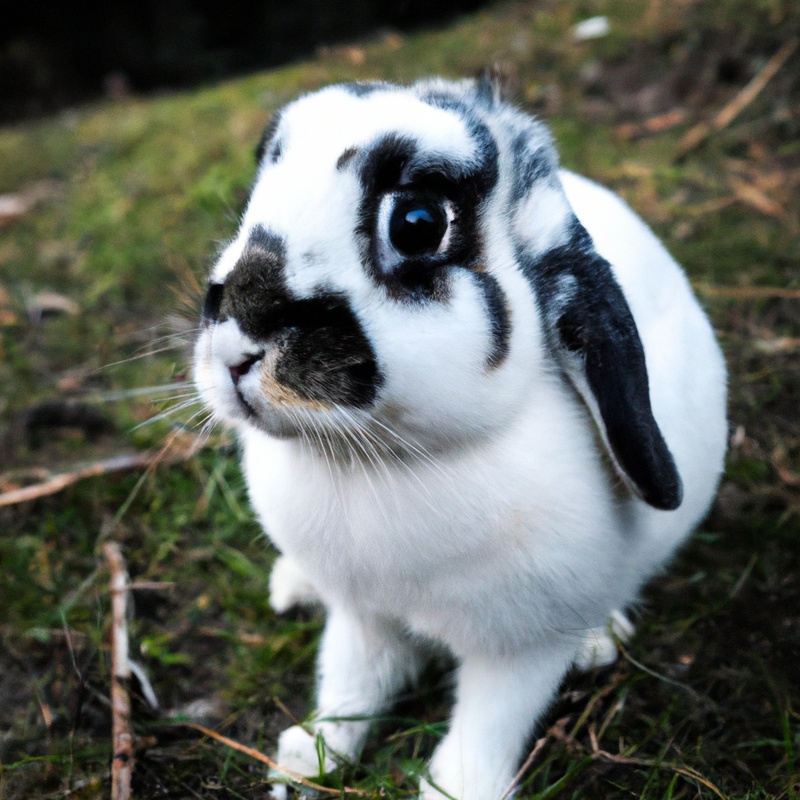
Maintaining Your Rabbit’s Dental Health
Caring for your rabbit’s dental health is important for their overall well-being.
Here are some tips to help maintain their dental health:
- Provide plenty of hay: Hay is essential for rabbits as it helps wear down their teeth and promotes healthy chewing.
- Avoid sugary treats: Limit the amount of sugary treats you give your rabbit, as they can contribute to dental problems such as tooth decay.
- Regular dental check-ups: Schedule regular check-ups with a rabbit-savvy veterinarian to ensure any dental issues are detected early.
- Monitor eating habits: Pay attention to any changes in your rabbit’s eating habits, as this could be a sign of dental problems. If you notice any issues, seek veterinary care immediately.
Remember, taking care of your rabbit’s dental health is crucial in preventing dental problems and keeping them happy and healthy.

Exercise and Mental Stimulation for your Rabbit
Keeping your rabbit physically active and mentally stimulated is essential for their overall well-being and happiness.
The Importance of Exercise for Rabbits
Exercise is vital for rabbits to maintain their overall health and well-being.
Regular physical activity helps to keep their muscles strong, prevents obesity, and improves digestion.
It also provides mental stimulation, which is essential for their mental health.
Encouraging your rabbit to exercise can be as simple as providing plenty of space to roam, setting up obstacle courses, or playing interactive games with them.
Regular exercise is essential for a happy and healthy rabbit.
Setting Up an Enriching Environment
To create an enriching environment for your rabbit, focus on providing a spacious and safe living area.
Ensure your rabbit has ample space to move around, stretch, and explore.
Include hiding spots, tunnels, and platforms for mental stimulation.
Offer a variety of toys and chew items to keep your rabbit engaged.
Provide fresh hay, water, and a litter box for comfort and cleanliness.
Regularly rotate toys and rearrange the layout to keep things interesting.
Remember, a happy rabbit is a stimulated rabbit!
Engaging in Interactive Play with Your Rabbit
Engaging in interactive play with your rabbit is a great way to keep them mentally stimulated and entertained.
Consider providing them with toys that they can push, chew, and manipulate.
You can also create obstacle courses for them to explore and navigate.
Another fun activity is hiding treats around their play area for them to find.
Remember to always supervise your rabbit during playtime to ensure their safety.
Maintaining Your Rabbit’s Health
To ensure your rabbit stays healthy, regular check-ups and vaccinations are important, along with being able to identify common health issues. Additionally, knowing how to handle emergencies and finding a rabbit-friendly vet are essential for maintaining your rabbit’s health.
Routine Check-ups and Vaccinations
Routine check-ups and vaccinations are essential for maintaining your rabbit’s health.
Regular visits to the veterinarian can help detect and prevent any potential health issues early on.
During these check-ups, the vet will examine your rabbit’s overall condition, including their teeth, eyes, coat, and weight.
They may also administer necessary vaccines to protect against diseases such as rabbit hemorrhagic disease and myxomatosis.
Remember to follow your vet’s recommended vaccination schedule to ensure your bunny stays healthy and happy.
Identifying Common Rabbit Health Issues
Identifying common health issues in rabbits is essential for their well-being.
Some common health issues include gastrointestinal stasis, dental problems, and respiratory diseases.
GI stasis occurs when a rabbit’s digestive system slows down or stops completely, usually due to a lack of fiber in their diet.
Dental problems can occur if a rabbit’s teeth become overgrown, leading to difficulty eating and potential infections.
Respiratory diseases, such as snuffles, can cause sneezing, nasal discharge, and difficulty breathing.
Regular vet check-ups and careful observation can help detect these health issues early, ensuring prompt treatment.
How to Handle Emergencies and Find a Rabbit-friendly Vet
If your rabbit is facing an emergency, act quickly by contacting a rabbit-friendly vet. Look for a vet who specializes in small animals or has experience with rabbits.
Keep their contact information easily accessible, especially during off-hours.
In case of emergencies, don’t hesitate to call or visit the vet right away. Make sure to familiarize yourself with common rabbit emergency signs such as difficulty breathing, loss of appetite, or sudden behavior changes.
Trust your instincts and seek professional help for your furry friend.
Socializing and Bonding with Your Rabbit
To have a happy and healthy rabbit, it’s important to socialize and bond with them.
The Importance of Social Interaction
Social interaction is vital for rabbits. It helps them feel happy and secure, reduces stress, and prevents boredom.
Interacting with your rabbit regularly strengthens the bond between you and your furry friend.
It’s important to spend quality time together, whether it’s playing, petting, or simply sitting nearby. Providing social opportunities, such as playdates with other friendly rabbits, can also benefit your pet.
Don’t underestimate the power of social interaction in ensuring your rabbit’s well-being and overall happiness.
Methods to Bond and Create Trust with Your Rabbit
To bond and create trust with your rabbit, spend quality time with them every day. Start by sitting near their enclosure and talking to them softly.
Offer them their favorite treats, gently petting them to establish positive associations.
Gradually allow them to explore outside their enclosure, ensuring a safe environment. Use positive reinforcement, such as treats and praise, when they exhibit desired behaviors.
Be patient and consistent in your interactions, and respect their individual personalities and boundaries.
Spending time together and building trust will strengthen your bond with your beloved bunny.
Introducing Your Rabbit to Other Pets
Introducing your rabbit to other pets can be a gradual process that requires patience and supervision.
Start by allowing them to sniff each other through a barrier, like a cage or baby gate.
Gradually increase their interaction time while closely monitoring their behavior.
Keep in mind that some pets, like cats and dogs, may view rabbits as prey, so it’s important to always prioritize safety.
Slowly introducing your rabbit to other pets can help them form positive relationships over time.
Handling and Training Your Rabbit
Handle and train your rabbit with care using proper techniques and basic commands.
Proper Handling Techniques
Proper handling techniques are key to ensuring the well-being of your rabbit.
Here are some tips to keep in mind:
- Approach your rabbit calmly and gently, avoiding sudden movements that may startle them.
- Support their hindquarters with one hand while using the other hand to hold their chest. This helps to prevent them from kicking or squirming.
- Avoid picking up your rabbit by their ears, as this can cause injury and stress.
- Take care not to squeeze or apply too much pressure when holding your rabbit, as they have delicate bones.
- If your rabbit shows signs of distress or discomfort, such as struggling or biting, gently release them and try again later.
- Always supervise interactions between children and rabbits, as young children may not have the necessary skills to handle them properly.
Remember, each rabbit is unique, so take the time to understand your bunny’s individual preferences and comfort levels when it comes to handling.
Litter Training Your Rabbit
Litter training your rabbit can be a simple and rewarding process.
Start by placing a litter box in their cage, filled with rabbit-friendly pelleted litter.
When your rabbit consistently uses the litter box, you can gradually expand their living space.
If accidents happen, clean them up quickly to avoid reinforcing bad habits.
Offer positive reinforcement, such as treats and praise, when your rabbit uses the litter box correctly.
With patience and consistency, your rabbit can become litter trained in no time!
Introducing Basic Commands and Tricks
When it comes to introducing basic commands and tricks to your rabbit, there are a few key things to keep in mind. Firstly, start with simple commands like “come” and “stay” to establish communication.
Secondly, use positive reinforcement, such as treats and praise, to motivate your rabbit.
Remember to keep training sessions short and frequent for better results. Practice patience and consistency to help your rabbit understand and respond to the commands.
With time and effort, your bunny can learn a variety of fun tricks like jumping through hoops or spinning in circles.
Frequently Asked Questions about Rabbit Care
What do rabbits eat?
Rabbits eat a variety of foods to stay healthy and happy. Their diet should consist mainly of fresh hay, which helps maintain digestive health and wear down their teeth.
They also need a daily serving of fresh vegetables like lettuce, spinach, and carrots.
Make sure to introduce new foods gradually to avoid digestive upset. Additionally, provide a small amount of high-quality pellets that are specifically formulated for rabbits.
Fresh water should always be available.
Remember to avoid foods that are toxic to rabbits, such as chocolate and onions.
How often should I clean my rabbit’s cage?
Cleaning your rabbit’s cage is essential for their health and well-being. You should clean the cage at least once a week to remove any urine, droppings, and food debris.
However, if your rabbit tends to make a mess or has a large cage, you may need to clean it more frequently.
Regular cleaning helps prevent odor, reduces the risk of infections, and keeps your bunny happy and healthy. Make sure to use pet-safe cleaners and provide fresh bedding for comfort.
Can rabbits be kept outdoors?
Yes, rabbits can be kept outdoors, but there are a few important things to consider. Rabbits need a safe and secure outdoor enclosure that protects them from predators and provides shelter.
The enclosure should be spacious enough for them to move around and explore.
It’s also crucial to provide them with a shaded area to protect them from extreme heat or cold. Regular checks for signs of illness or discomfort are necessary, as rabbits can be more susceptible to health issues when kept outdoors.
Final Verdict
Providing proper care for your rabbit is essential for their overall well-being and happiness. From choosing the right breed and creating a suitable habitat to understanding their diet and exercise needs, every aspect of their care plays a crucial role.
Regular veterinary check-ups, maintaining hygiene, and social interaction are all important for keeping your rabbit healthy and happy.
With the right knowledge and commitment, you can create a strong bond with your rabbit and ensure they live a long and fulfilling life. Remember, a happy bunny is a healthy bunny!

